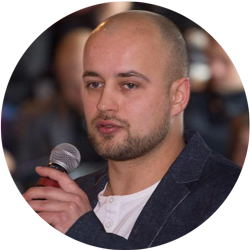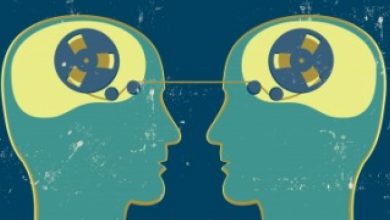The best vision comes out of InterVision
Intervision is a ‘peer coaching’ activity with a small group of professionals or managers who have a professional context or challenge in common. Often, other terms like peer learning, peer assisting, group supervision, etc are being used. The term Intervision emphasizes the multilateral exchange between colleagues as opposed to supervision.

It is an opportunity to use each other’s vision, experience and ideas in order to find new ways of addressing issues in your work context. In summary, Intervision is about:
- Inter-collegial consulting;
- in a work context;
- with colleagues, equals (not the formal hierarchy is important, but the felt freedom to speak up and show weakness);
- with a simple format and structure (and within a short time frame);
- an important trigger for experiential learning;
Within the intervision format, you can use several methodologies such as: incident method, role-play, fishbowl, open chair, storytelling, etc… You can use a process facilitator, or function as a self-managing group.
Intervision creates a feeling of connection between stakeholders and strengthens their sense of belonging to the organization.
Why did I choose this tool?
We practice this method a lot and it works out very well not only in solving the issue, but also being more emphatic with others. This also strengthens the relationship and brings more alternative ways of solving the issue.
Learning and innovating in an organization is only possible if professionals have the feeling to belong to the same ‘club’ and when they feel connected to other professionals and are thinking of their work as a contribution to a common purpose and not focusing on their particular interests. HOW CAN I CONTRIBUTE needs to be the primary guideline for their priorities. And in order to get there a few elements are important : dare to challenge each other, put expertise together and share openly in order to come to better solutions, know what is important for your internal customers and suppliers, keep an open mind for other ideas, and ways to look at things.
Intervision plays an important role in that professional solidarity since:
- It offers a sounding board to professionals to bounce off new ideas, plans, intended interventions or actions, etc…
- It creates access to alternative ideas and helps to move in another direction and test things out (experiential learning)
- The diversity in experience, perspective and role of the participants, allow individual participants to look at their reality differently and allows for them to think out of the box.
- It allows for individuals to acquire skills and competencies, instrumental for learning :
– Active listening, empathy, challenge and constructive inquiry
– Creative thinking and creative problem solving
– Analysis & Synthesis
– Collaboration and process guidance & interventions
– Professional Networking
– Intervision is one of the triggers for a collaborative culture where people feel collectively responsible for organizations and want to contribute to organizational and business performance. It helps the transversal and horizontal integration and fortifies the internal customer / supplier links.
How does this apply to being a trainer?
This method would help you to get feedback and ideas from other trainers about how to develop abilities to build up a supportive relationship with learners but the practice of this method builds empathy and respect. It is very important being honest with yourself and others.
Main content:
Intervision is a small group activity for 4 to 6 people. It allows people to get input from their peers on issues and problems. It is a peer-coaching technique which can be facilitated but with groups with a little bit of experience it can also be team led, without facilitation.
The main objectives are:
- To share problems, questions, and concerns with colleagues regarding to trainer’s ability to establish and maintain supportive relationships with learners.
- To develop the skills and insights of people who try to look for solutions
- To help others to become effective and autonomous in creating a better environment for creativity.
- To strengthen solidarity between people facing similar challenges, as support activity for trainers (to keep the training flame going).
During an Intervision session each participant brings out one issue. The session can be done with or without a facilitator. In either case, sticking to the allocated time is crucial for the effectiveness of the exercise. This stops the group from dwelling on details. The group spends 30 minutes on each issue.
1. One of the participants (the issue owner) introduces an issue, which can be a new challenge or a problem that he or she is facing (3 min.). Make sure it is an ongoing issue and not just an issue from the past.
2. The other participants then ask questions to clarify particular points and to find out more about the topic (10 min.). Make sure you do not start to discuss solutions in this step, instead stick to clarification!
3. The group then starts brainstorming on possible ways of approaching the problem, and possible solutions to try out. A paperboard is useful to capture ideas, making them ‘visible’ throughout the process. The issue owner is invited to listen and to take in the proposals without going into the discussion (10 min.)
4. Based on the brainstorming, the group then makes a number of recommendations and suggestions to the issue owner (2 min.).
5. The issue owner can then give feedback on what he/she has heard from the group: how this helps or not, what can he/she take away from the exercise, etc. (5 min.)
You can do a ‘full session’ where every participant brings in one ‘issue’ and which will then last about 3 hours for a group of five. You can also decide to do one ‘issue’ at the time and plan every week or so a 1⁄2 hour session. In this case it is of course important to have ‘regular sessions’, planned in advance in order for everybody to ‘tap’ into the brain of his peers.
Reflection questions:
How did you feel while having intervision?
How did it help you to understand your colleague more?
How did it help you to understand yourself more?







